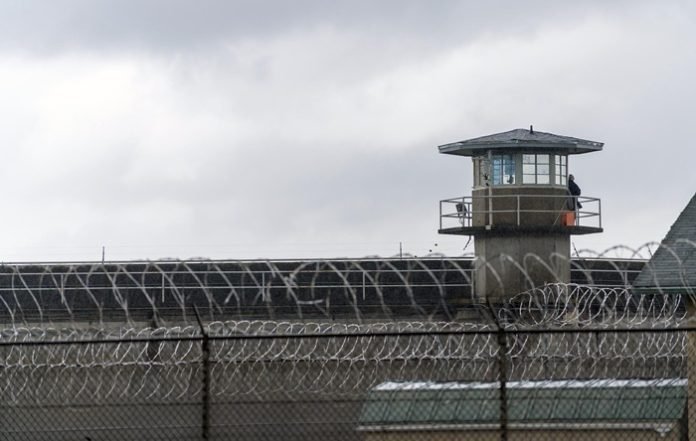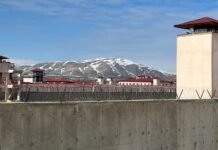A report drafted by Turkey’s Human Rights Association (İHD) has revealed that at least 10,789 rights violations took place in 153 prisons in 58 provinces across Turkey last year, Turkish Minute reported on Monday.
The İHD report, released on Monday and titled “Turkey Prison Monitoring Report 2022,” was prepared as a result of visits by volunteer lawyers from the association to prisons as well as based on letters or faxes sent by inmates to the association.
The majority of applications made to the İHD focus on arbitrary suspension of privileges such as social activities and use of the telephone as well as unjust placement in solitary confinement and denial of access to healthcare. Additionally, they cover issues related to the arbitrary denial of early release from prison, torture, ill-treatment and discrimination.
According to the report, there are at least 1,517 sick inmates in Turkish prisons, 651 of whom are critically ill.
A total of 2,439 violations were identified as pertaining to denial of access to healthcare by authorities in 2022, including the the right to proper nutrition (505 violations), some prisons’ security personnel not unlocking handcuffs and medical staff not requesting their removal (48 violations), the non-provision of hygiene products by the prison administration (38 violations), issues faced by disabled prisoners (31 violations) and refusal to allow the changing of bed linens (19 violations).
The association demanded the immediate release of critically ill prisoners based on hospital reports. Additionally, they urged that Turkey’s Council of Forensic Medicine (ATK) no longer be the sole and final authority for deferring sentences on health grounds, adding that it should make decisions “according to medical science and ethics rather than pressure from the political authorities.”
At least 81 inmates died in Turkish prisons last year, with six of the sick prisoners passing away shortly after their release, the report said, adding that at least 234 prisoners in 33 prisons have engaged in hunger strikes and/or death fasts to protest problems in the system.
The report further revealed that 19 inmates were alleged to have died by suicide, with two of them being minors. The İHD also said 10 prisoners informed them of their intention to take their own lives.
Regarding torture, ill-treatment allegations and degrading practices in prisons, the İHD said there had been at least 308 violations last year, including 272 related to physical assault, threats and verbal abuse and 36 related to provocative behavior exhibited by prison guards.
The report also showed that 187 prisoners said they were subjected to strip-searches, which were conducted routinely, and there were five violations identified due to the imposition of strip-searches and/or thorough searches on families during visitation. Moreover, there were 47 complaints received from female visitors regarding humiliating searches, according to the İHD.
According to Turkish legal and preventative search regulations, strip-searches can only be conducted in exceptional cases, such as when there are credible indications that the person has contraband materials on him. In such cases the search must be conducted in a manner so as not to humiliate the person and as quickly as possible. When there is a credible suspicion that something is hidden in the person’s body, officers are required to ask the person to remove it himself and inform him that if he disobeys, the removal will be done by the prison doctor.
However, testimonies of female inmates indicate that Turkish security forces use strip-searches unlawfully and systematically to humiliate them.
The association also stated that Abdullah Öcalan, the imprisoned leader of the outlawed Kurdistan Workers’ Party (PKK), has not been allowed to meet with his lawyers since August 7, 2019 and that for the past 29 months, there has been no communication or information received about him. It is noted that there has been no positive or negative response to the meeting requests and most recently, on July 18, new disciplinary sanctions were imposed to prevent any possibility of a meeting.
The PKK, which has been waging a bloody war in Turkey’s Southeast since 1984, is listed as a terrorist organization by Turkey and much of the international community. Öcalan has been imprisoned since 1999.















